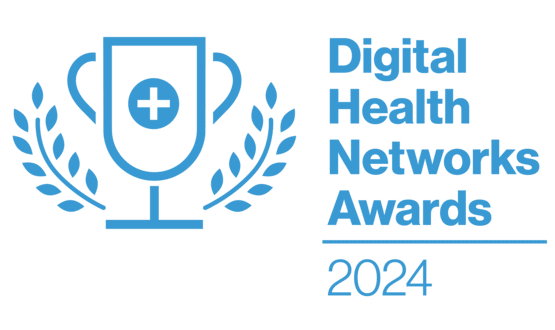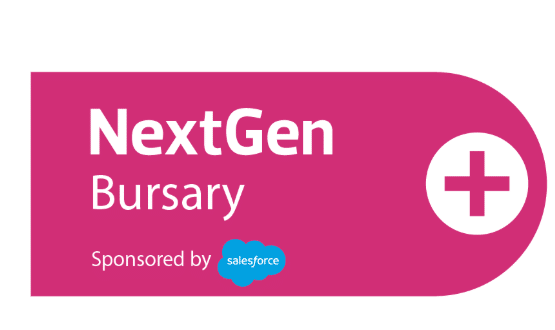Back to school
- 5 August 2014

The spirit of collaboration was in the air and on the agenda at the second CCIO Leaders Network summer school last week.
More than 40 chief clinical information officers, some from as far afield as Northern Ireland, headed to the Judge Business School in Cambridge to discuss the changing role of CCIOs, the need for greater information-sharing, and the pros and cons of different IT developments, including open source software.
From campaign to network
The CCIO Leaders Network was set up in 2012, following an EHI campaign for every NHS trust, health board, or commissioning organisation to consider appointing a CCIO to lead on IT and information projects.
The chair of its advisory group, Dr Joe McDonald, recalls “a lightbulb moment” when he heard that the network had been set up.
“I thought: ‘That’s what we need, a national network of IT-savvy clinicians who can lead on all the things we tried to do in the National Programme for IT, but failed to do because we didn’t have those clinical leaders’,” he says.
Since it was set up, some 90 CCIOs have been appointed, and the network has held a series of regional events, two annual conferences, and last year’s summer school to help them share experiences and ideas.
This year’s summer school saw a mix of old and new attendees, with a roughly 50/50 split between those who went to last year’s event and those who were taking part for the first time.
EHI editor Jon Hoeksma says this made the summer school an “intensive” two days of networking and sharing of best practice, with sessions on leadership, the challenges facing future CCIOs, and how to develop the next generation.
Talking about sharing
Further sessions focused on integration and information sharing, with Dr Charles Gutteridge from Barts Health NHS Trust talking about the challenges of integrating three very different hospitals and their IT.
Dr Colin Brown from Morecambe Bay NHS Foundation Trust also discussed its involvement in the development of Lorenzo and how it is now exchanging information with its local healthcare community.
Hoeksma says this triggered significant discussion about how trusts can share information more effectively beyond the walls of their organisation; not just with their neighbouring trusts, but with primary care and community organisations and with social care.
“It’s clear that more and more CCIOs are at the centre of initiatives around information-sharing, so that’s one of the areas we want to develop further,” he says – adding that this may become one of the focuses of the next CCIO Leaders Network annual conference, which will take place alongside EHI Live 2014 in November.
School trip to Addenbrooke’s
The summer school also had the chance to visit Addenbrooke’s Hospital, which is working with HP to upgrade its infrastructure and hardware, preparing to go live with the Epic electronic patient record system, and working on a wider transformation programme.
McDonald says the visit to Cambridge University Hospitals NHS Foundation Trust was a highlight of the event, describing it as “a very honest and open account of what it means to get Epic.”
“It was absolutely fascinating: the commitment they’re making in terms of staffing and money is amazing, really.”
The honesty at the site visit extended throughout the event, with McDonald saying the CCIOs were far more willing to share than they had been at the first summer school.
“There was a really honest feel to the meeting where people could share their successes and, more importantly, their failures. The atmosphere was one of trust; whereas at the first one we were all eyeing each other up.”
Hoeksma agrees: “There were a lot of exciting ideas, a lot of emails and people wanting to share documents, and it’s noticeable how much more that has developed since last year.”
Change in the air
The changing role of CCIOs was a definite focus. Hoeksma points out that their responsibilities may need to change as more EPR systems go live and implementations cease to be a pressing concern for trusts.
“Most CCIOs come to the role because they’re leading on electronic record projects and implementations. But as we get into a world where there’s a base level of digitisation in place, what is the role of the CCIO in making sure that patients and organisations get maximum benefit from their information?”
This brought up the issue of data analytics and how CCIOs can ensure that trusts get the most out of their data.
“There’s the issue of, once you have the data, how you drive the benefit from the data? The NHS is rich in data, but in terms of actionable insight, there was discussion about whether that’s a role for CCIOs,” Hoeksma says.
McDonald adds that another of the hot topics at the summer school was open source solutions, with CCIOs excited by the push towards greater use of open source thinking.
“CCIOs are quite pro open source… because they see it as much more in the spirit of medicine. If you created penicillin, you wouldn’t hide it under your bed, you’d tell everybody, because we’re supposed to share knowledge for the benefit of mankind.”
More surveys, more events, more plans, more trust
A further highlight from the summer school was the after-dinner speech from former Health and Social Care Information Centre medical director Dr Mark Davies.
McDonald describes this as “funny but also passionate” and addressing the “righteous rage” that clinicians feel when speaking about usability.
That righteous rage is being channelled into work on a national usability survey. Both Hoeksma and McDonald say they hope to start work on this over the next few months.
The third national CCIO survey will also run in early autumn, with particular focus on whether there has been a continuation of the previously uncovered upward trend in the number of sessions for which clinicians are being employed by their trusts as CCIOs.
The results will be unveiled at the annual conference at the NEC, while there are also plans to set up a joint Health CIO-CCIO boot camp to link in with the newer Health CIO Network and promote greater collaboration.
“They want to work together to have CIOs and CCIOs sharing more, because there’s this recognition that you need both good CIOs and CCIOs to have maximum benefit,” Hoeksma says.
Before November, there will also be further best practice webinars. So far, a couple of these have been run, but there are plans to increase their frequency. At the summer school, more than half a dozen CCIOs volunteered to run a webinar of their own.
“It’s a straightforward way from people to find out about best practice and ask questions in a time-effective format,” Hoeksma says. “So that’s a good model for us.”
Hoeksma says the real success of the network, one that underpins its events and future plans, is the strong relationships that have formed between CCIOs and strengthened since its creation.
“Last year, they barely knew each other. Now, they meet several times a year. They trust each other – they might disagree very strongly sometimes, but they have that common bond.”
For a full account of the visit to Addenbrooke’s, and Cambridge University Hospitals NHS Foundation Trust’s progress towards its October go-live with Epic, read the Insight feature ‘Three months to an Epic event’.




